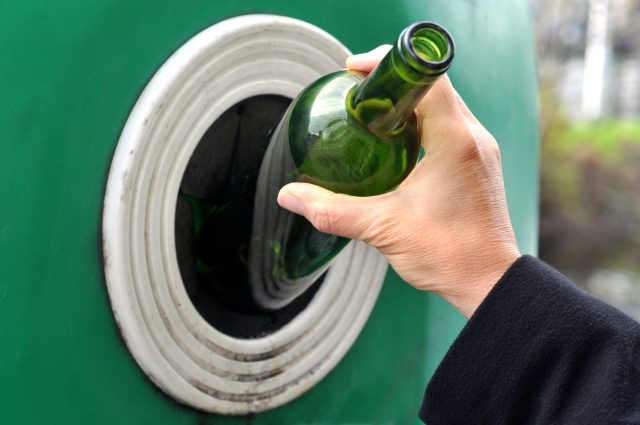Westminster accused of ‘destroying’ DRS as Circularity Scotland enters administration
The firm set-up to manage Scotland’s deposit return scheme (DRS) has entered administration, following the decision to delay the project when the UK Government said it would not support the inclusion of glass.

It follows the news from the first minister Humza Yousaf that he would delay the scheme in a statement to the Scottish Parliament, after the SNP claimed the UK Government made a last minute intervention which forced its hand – a claim denied by Westminster.
Scotland’s DRS was originally due to come into effect in August, and has caused continuous controversy, with some even calling the project a potential “high profile failure” and Yousaf was urged to take action on the “chaotic and poorly designed” system on his election last month, and has now acted on his promise to address the issues raised by the industry about the DRS.
A fierce debate erupted in Holyrood about the DRS, following the news about Circularity Scotland, with the Greens and SNP stating that the firm’s staff were victims of the UK Government “destroying Scotland’s scheme”, according to MSP Kevin Stewart.
Stewart asked circular economy minister Lorna Slater how many jobs were at risk of the decision, in light of Circularity Scotland and Biffa’s previous plans to set up a £7.7 million counting centres in Aberdeen and Motherwell.
Impossible position
Slater said: “Scotland’s deposit return scheme would have created up to 500 new green jobs, including as the member highlights in Aberdeen and Motherwell. We are in the very regrettable position that these new jobs are now at risk with our DRS being unable to launch.
She also said she had been put in an “impossible position” by the UK Government and the scheme had to be delayed as a result.
Additionally, the Scottish National Investment Bank said it expects to lose half of the £9m loan it previously gave to Circularity Scotland with chair of the bank telling MSPs that the whole sum could be lost.
The UK government has rejected the claim that it is to blame for the collapse of the Scottish DRS, and said the decision to delay was “entirely made by the Scottish Government”.
Partner Content
Circularity Scotland CEO David Harris had stated that the scheme remained viable, even with the conditions imposed by Westminster on glass.
Sympathy
The Federation of Independent Retailers (the Fed) said it had “enormous sympathy” for the 60 people who lost their jobs, and who face an uncertain future, and its national vice president Mo Razzaq said there was now a “compelling case” for a single organisation to run a bottle and can return scheme across the UK.
He said: “If each of the four nations has its own organisation, the system is likely to be more complex, bureaucratic and expensive for retailers, drinks producers and consumers. All of this will get in the way of our shared objective of a successful deposit return scheme curbing litter and waste of the planet’s resources.
“We believe it would also be helpful now for Scotland to review the strengths and weaknesses in the planning for its own deposit system so that we can help shape the creation of a stronger system for the UK. More research into the successful launch of systems in other countries around the world, would also help inform our thinking.”
Wales
It follows the news that Wales is to continue in its attempt to run a DRS which includes glass, in a move which brewers have described as “arrogant”.
The chair of the Brewers of Wales, Simon Buckley, also told db that he had been involved for well over a year with the Welsh Government on the scheme, meeting with deputy head of the food division, David Morris, and packaging policy manager, Howard Davies, and it was “clear its our way or no way”.
He said: “There was to be no negotiation on glass. If the big brewers could do it then the little guys could as well.”
Buckley also agreed with the comments from the Fed, stating than only a UK-wide scheme would be successful. H
He said: “There will need to be safeguards, there will need to be low cost entry, and to work, England, Scotland and NI need to be involved, but that’s not going to happen.”
Related news
Scotland just got tastier for beer fans




